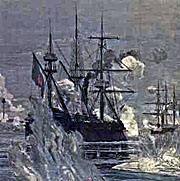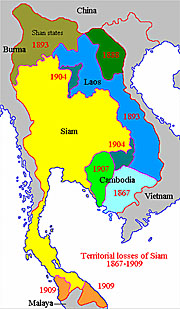A History of Thailand
A highly recommendable introduction in the understanding of contemporary Thailand and it's society.
This lively, accessible book is the first new history of Thailand in English for two decades. Drawing on new Thai-language research, it ranges widely over political, economic, social, and cultural themes.
Chris Baker and Pasuk Phongpaichit reveal how a world of mandarin nobles and unfree labour evolved into a rural society of smallholder peasants and an urban society populated mainly by migrants from southern China. They trace how a Buddhist cosmography adapted to new ideas of time and space, and a traditional polity was transformed into a new nation-state under a strengthened monarchy.
The authors cover the contests between urban nationalists, ambitious generals, communist rebels, business politicians, and social movements to control the nation-state and redefine its purpose. They describe the dramatic changes wrought by a booming economy, globalization, and the evolution of mass society. Finally, they show how Thailand's path is still being contested by those who believe in change from above and those who fight for democracy and liberal values.
Chris Baker taught Asian history at Cambridge University, and has lived in Thailand for over twenty years. He is now an independent writer, researcher, and translator. Pasuk Phongpaichit is Professor of Economics at Chulalongkorn University, Bangkok. She has written widely in Thai and English on the Thai economy, sex industry, corruption, illegal economy, and social movements. Together, they have co-authored Thailand: Economics and Politics, Thailand's Boom and Bust, Thailand's Crisis, and Thaksin: The Business of Politics in Thailand.
Cambridge University Press
Preface
History was invented for the nation-state. It has a tendency to imagine 'the false unity of a self-same, national subject evolving through time' (Prasenjit Duara). All too easily, the nation becomes something natural which always existed but was only properly realized in the nation-state. In reaction against this tendency, historians today prefer to write about people, things, ideas, localities, regions, or the globe – anything but the nation. Or else they write reflective histories about the interplay between the nation and the production of its own history. The approach adopted here is to make the career of the nation-state the explicit focus of the story. One of the themes of this book is about how the idea of the nation and the machinery of the nation-state were established in Thailand, and then how different social forces tried to make use of it – by reinterpreting what the nation meant, and by seeking to control or influence the use of state power. The second major theme is about the evolution of the social forces involved. After the introductory chapter, the chapters alternate between these two themes, though the division is rough not rigid. (...)


.jpg)

